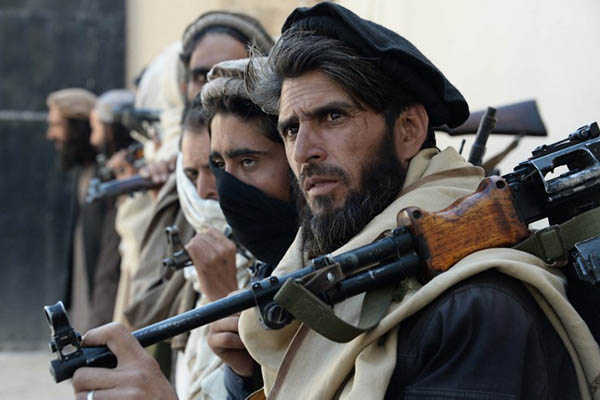
File Photo. Noorullah Shirzada—AFP
The war on terror in Afghanistan has always been in Pakistan’s larger interest.
Excited into a slugfest by Husain Haqqani’s latest Washington Post article, politicians are demanding punishment for all those who “traitorously” betrayed Pakistan. The ruling Pakistan Muslim League (Nawaz) wants the Pakistan Peoples Party stretched on the wheel for accepting America’s killing of Osama bin Laden and also wants ex-Army chief Gen. (retd.) Pervez Musharraf hanged for accepting a war against terror in Afghanistan that was “not Pakistan’s war.”
After the events of September 11, 2001 in New York, Pakistan had to join the coming war of international chastisement—Musharraf had to accept the global consensus, as anyone else in his place would have had to.
America had gone to the United Nations and got Security Council Resolution 1373 passed—without opposition from China—which called on states “to freeze terrorist financing, pass anti-terrorism laws, prevent suspected terrorists from traveling across international borders, and order that asylum seekers be screened for possible terrorist ties.” It did this all under Chapter VII of the U.N. Charter, thereby making these dictates binding under international law. This resolution marked a step farther than the Security Council had ever gone before. Sensing this, India was ready to offer the logistics that the U.N. force needed to attack inside Afghanistan.
Resolution 1373 was the one and only time that the Security Council forced all U.N. member states “to revise national laws to comply with an international standard.” This was a massive expansion of the powers of the Security Council and it reflected the urgency felt by the member states at the time. According to official records, the Council session that passed this resolution lasted only 3 minutes, so unanimous were the 15 member states. Musharraf or anyone else in his place couldn’t have stayed out of the war despite Pakistan’s covert participation in the earlier conflict on the side of Taliban.
